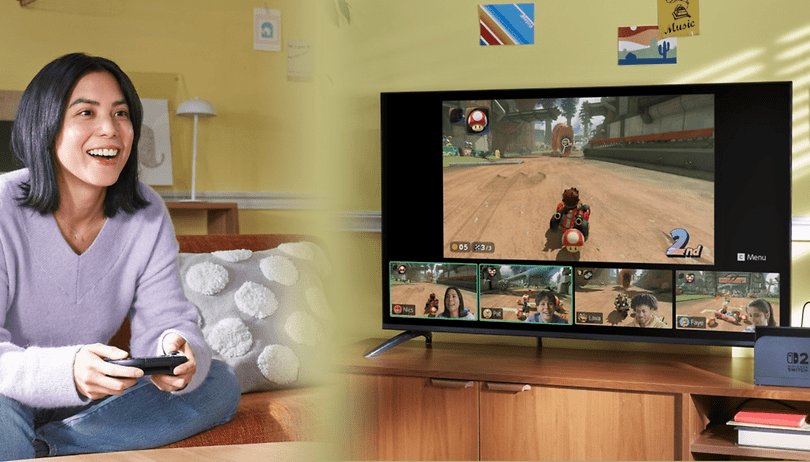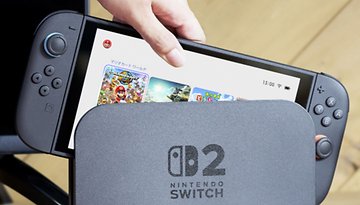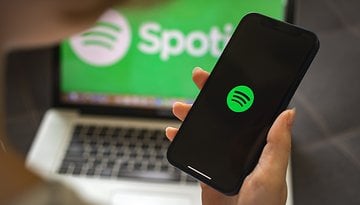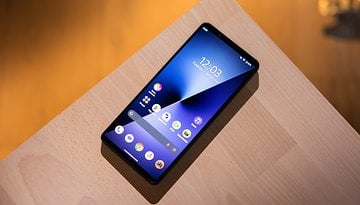GameChat on Switch 2: How Nintendo Wants to Keep the Perverts Away


The Nintendo Switch 2 's GameChat function has been the talk of the town, not least because it will be a paid feature. But not only will you need a Nintendo Switch Online subscription to use it, but a phone number linked to your Nintendo account will also be required. There are a lot of barriers to entry for a simple chat function. But perhaps not so much when you consider the potential for abuse.
The Nintendo Switch 2's GameChat function lets you create chats with up to 12 participants. You can talk to your friends while you play, even on different games. With a camera connected via USB-C (and sold separately, of course), you can also see your friends and vice versa in video calls with up to 4 people.
It's very handy for engraving in your memory your ex-best friend's tearful, sad face after sending him a blue shell in Mario Kart World. But it can also be potentially dangerous. Insults, bullying, even sexual harassment, and other criminal activities. It's a very bleak prospect indeed. But Nintendo has undoubtedly considered the worst ways in which some malicious users might attempt to hijack the GameChat function.
And making GameChat chargeable isn't the only solution being considered to make gamers more responsible. Nintendo has added an extra layer of "security" by requiring a phone number, as stated on its official website:
As an additional security measure, SMS verification is required to set up GameChat. The phone number registered on your Nintendo account will be used.
Voice and video chat, a pool that can be very toxic
If you grew up in the Call of Duty lobby era, you'll know the extent to which the social functions of video games have been hijacked from their original purpose. Exchange, healthy and benevolent communication, it's an ethereal mirage at the antipodes of reality.
Check out this playlist by kayaluh entitled "the female experience" on YouTube. This content creator films herself playing Valorant and compiles, among other things, the sexist remarks and insults she receives from other players simply because she used voice chat with a female voice. I'm also thinking of Silksheets, who used to run racist insult speed runs on Call of Duty. The aim was to see how long it would take someone to hurl a racist invective at them after they'd simply said "I'm black" in voice chat.
Of course, the point is not to generalize marginal behaviors to the entire gamer community. The idea is simply to point out the excesses that exist and that many people have experienced or are experiencing when gaming.
This is surely why Nintendo refused to implement such functions for so long. Especially since Nintendo's target audience is very particular. On the one hand, we have a very casual family audience, made up of adults and children who play occasionally. On the other, we have a more niche audience made up of geeks who are a little more "hardcore gamers". It's all very stereotypical, and the two target audiences sometimes mix.
What I mean by this is that children and adults sometimes play the same games at the same time. This is the prerogative of all multiplayer games, on Nintendo Switch 2 or any other platform. They use the same social functions, such as inviting a player you've met to play as a friend. Framing these interactions is therefore essential, especially given the potential abuses I've just scratched the surface of above.
How Nintendo wants to protect its young players
In the past, hijacking the social functions of a game or console and exposing them to underage players has caused problems. Problems that Nintendo wants to avoid at all costs. One example is Swapnotes on the Nintendo 3DS. This function enabled users to create notes or drawings on Nintendo's handheld console, then share them with friends.
But Nintendo quickly put an end to this service in October 2013, two years after its launch. Japanese media at the time revealed that several adult men had been arrested for sharing or requesting sexually explicit content from underage female users. This is what Nintendo said in a press release in 2013, quoted by IGN but which is currently no longer online:
"Nintendo learned that some consumers, including minors, exchanged friend codes on Internet message boards and then used Swapnote to exchange offensive material. Nintendo investigated ways to prevent this and determined that it was best to discontinue Swapnote's SpotPass feature because it allows for the direct exchange of photos and has been actively misused."
There are several other examples that I won't go into here. The point is that Nintendo is aware of these risks for its youngest users.
- Read also: Nintendo can block your Switch remotely
What's more, if you're under 16, GameChat will be blocked until a parent or guardian using the parental control app authorizes the use of the function. They will then be asked to add their own phone number for verification via SMS.
Nintendo also explained that the servers will store the last three minutes of video and audio when a person is reported for abusive use of GameChat.
What do you think of these measures to limit GameChat abuse? Do you think Nintendo is right to take such precautions? Or does this measure requiring a phone number seem too intrusive? If you have children, what are your solutions to the use of voice and/or video chats linked to video games?













